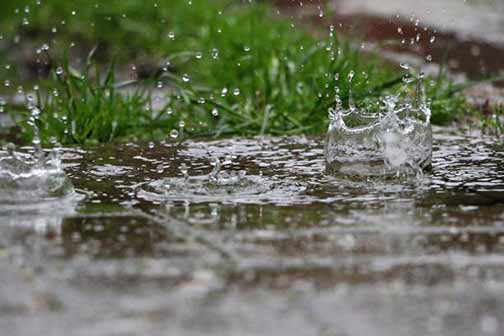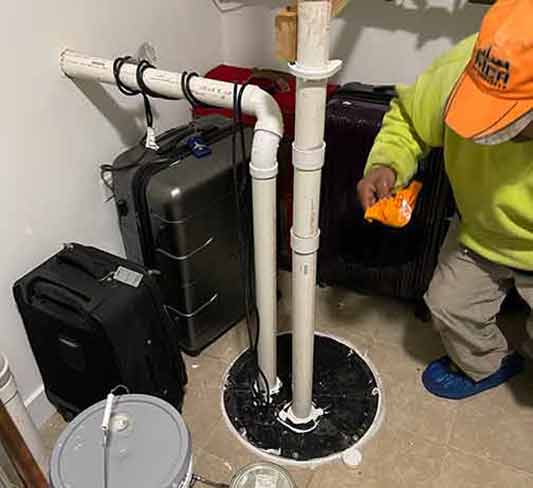
Springtime in Chicago brings with it a unique set of challenges, one of the most daunting being the increased risk of basement flooding. Here we aim to equip homeowners with the knowledge and tools necessary to navigate the perils of basement flooding effectively. From preparation to recovery, this guide offers step-by-step advice to ensure your home remains safe and dry during the spring season.
Understanding Basement Flooding and Its Causes
Basement flooding occurs when water enters the lower levels of a home, often due to heavy rainfall, melting snow, or poor drainage systems. Understanding the causes and potential impacts of basement flooding is crucial for effective prevention and management. Common causes include:
- Heavy rainfall overwhelming drainage systems
- Melting snow increasing water levels
- Clogged or damaged gutters and downspouts
- Cracks in foundation walls
- Sump pump failure
The consequences of basement flooding can be severe, including structural damage, mold growth, and loss of personal belongings. By understanding these risks, homeowners can take proactive steps to mitigate potential damage.
Preparing for Spring Flooding: Essential Steps
Preparation is key to minimizing the impact of basement flooding. Here are some essential steps to take before the spring season:
- Inspect and Maintain Drainage Systems: Regularly clean and inspect gutters, downspouts, and drainage systems to ensure they are functioning properly. Repair any damage promptly to prevent water from entering your basement.
- Check Foundation for Cracks: Examine the foundation walls for any cracks or signs of damage. Seal any cracks with appropriate materials to prevent water infiltration.
- Install a Sump Pump: A sump pump is a crucial tool for preventing basement flooding. Ensure your sump pump is in good working condition and consider installing a sump pump battery backup system in case of power outages.
- Elevate Important Items: Store valuable items, important documents, and electronics on elevated surfaces or shelves to protect them from potential water damage.
Essential Tools and Supplies for Flood Preparedness
Having the right tools and supplies on hand can make a significant difference in managing basement flooding. Here are some essential items to include in your flood preparedness kit:
- Wet/Dry Vacuum: Useful for removing water from your basement quickly and efficiently.
- Dehumidifier: Helps to reduce moisture levels and prevent mold growth after flooding.
- Sandbags: Can be used to create barriers and divert water away from your home.
- Plastic Sheeting and Tarps: Useful for covering and protecting items from water damage.
- Submersible Pump: An additional tool for pumping out water from your basement.
- Cleaning Supplies: Disinfectants, gloves, and other cleaning materials to sanitize affected areas after flooding.
Steps to Take During a Flood
In the event of a basement flood, it’s important to act quickly and efficiently to minimize damage. Follow these steps to manage the situation effectively:
- Ensure Safety First: Before entering a flooded basement, turn off the electricity to avoid the risk of electrocution. If the water level is high, consider calling a professional for assistance.
- Remove Water: Use a wet/dry vacuum, sump pump, or submersible pump to remove standing water from your basement. Work quickly to prevent further damage.
- Dry Out the Area: Use fans, dehumidifiers, and open windows to promote air circulation and speed up the drying process. This will help prevent mold growth and additional damage.
- Clean and Disinfect: Thoroughly clean and disinfect all affected areas and items to prevent the growth of mold and bacteria. Use appropriate cleaning supplies and wear protective gear.

Before entering a flooded basement, turn off the electricity to avoid the risk of electrocution. If the water level is high, consider calling a professional for assistance.
Post-Flood Recovery: Steps to Restore Your Home
Once the immediate danger has passed, it’s time to focus on recovery and restoration. Follow these steps to ensure a thorough and effective recovery process:
- Assess Damage: Carefully inspect your basement and home for any signs of structural damage, mold growth, or other issues. Document the damage with photos and notes for insurance purposes.
- Contact Insurance Company: Notify your insurance company of the flood and provide them with the necessary documentation. Follow their instructions for filing a claim and arranging for an adjuster to assess the damage.
- Repair and Restore: Begin the process of repairing and restoring your basement. This may involve hiring professionals for tasks such as mold remediation, structural repairs, and electrical work.
- Prevent Future Flooding: Take steps to prevent future flooding by addressing any issues that contributed to the initial flood. This may include improving drainage systems, sealing foundation cracks, and installing additional sump pumps or backup systems.
Preventive Measures for the Future: Long-Term Solutions
Preventing future basement flooding requires ongoing vigilance and proactive measures. Consider implementing the following strategies to protect your home:
- Regular Maintenance: Schedule regular inspections and maintenance of your home’s drainage systems, foundation, and sump pump. Address any issues promptly to prevent water infiltration.
- Landscaping: Ensure that the landscaping around your home slopes away from the foundation to direct water away from the basement. Consider installing a French drain system or other drainage solutions.
- Install Flood Sensors: Flood sensors can provide early warning of water intrusion, allowing you to take action before significant damage occurs.
- Improve Basement Waterproofing: Consider investing in professional basement waterproofing services to provide an additional layer of protection against flooding.
Seeking Professional Help: When to Call the Experts
While many steps can be taken by homeowners to prevent and manage basement flooding, there are times when professional help is necessary. Consider seeking assistance from professionals in the following situations:
- Severe Flooding: If your basement experiences severe flooding, it’s best to call in professionals who have the equipment and expertise to handle the situation safely and effectively.
- Mold Remediation: Mold growth can pose serious health risks and requires professional remediation to ensure complete removal and prevention of future growth.
- Structural Repairs: If your home has sustained structural damage due to flooding, hire a professional to assess and repair the damage to ensure the safety and integrity of your home.
- Electrical Work: Flooding can damage electrical systems, posing a significant risk. Always hire a licensed electrician to inspect and repair any electrical issues following a flood.
To Sum It Up
Basement flooding is a serious concern for homeowners in Chicago, especially during the spring season. By understanding the causes and risks of basement flooding, preparing in advance, and taking swift action during and after a flood, you can minimize damage and protect your home. Implementing preventive measures and seeking professional help when necessary will further ensure that your home remains safe and dry. This survival guide provides the essential information and steps needed to navigate the challenges of basement flooding, offering peace of mind and a sense of security for homeowners facing the unpredictable spring weather.
—



